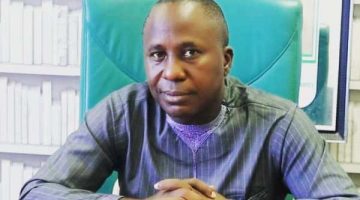ENERGY is the mainstay of Nigeria’s economic growth and development. It significantly serves as a tradable commodity for earning the national income, which is used to support government development programmes.
It also serves as an input into the production of goods and services in the nation’s industry, transport, agriculture, health and education sectors, as well as an instrument for politics, security and diplomacy.
It is evident that Nigeria being the most populous black nation in the world, endowed with rich and diverse natural resources, is still one of the poorest countries in the world with an estimated GDP per capita of N1977.97.
Energy crisis in Nigeria has become a norm for several decades and is the bane of her economic development. There is an extreme electricity deficiency in Nigeria and the causes of this deficiency are related to financial, sociopolitical, and structural issues.
These lead the power sector to be recording high energy losses from power generation and billing which lead to insufficient cash generation. As a result of these inefficiencies, only about 40 per cent of households in Nigeria are connected to the national grid.
There is high-energy loss due to the physical deterioration of the transmission and distribution facilities, an inadequate metering system and an increase in the incidence of power theft through illegal connections.
The Nigerian government has not been able to find permanent solutions that will resolve the problems. The irony of the situation is that, as the abundance of the vast oil and gas reserves are in Nigeria, so also are abundance of renewable energy potentials, but the country still depends on alternatives that are still within the limits of fossil fuels, which are the only source that currently powers the nation economy.
Acting out of the papers has become very necessary. Alternative energy sources are at present the only panacea that will ‘bail the cat’ as seen practised by many other countries including neighbouring Kenya, Ethiopia and South Africa which the Bloomberg New Energy Finance has confirmed is leading in the renewable energy revolution in Africa, leaving Nigeria, the “Giant of Africa behind.” Renewable energy sources are still the best and wonderful option because they are limitless.
Energy crisis in Nigeria has become a norm for several decades and is the bane of her economic development. There is an extreme electricity deficiency in Nigeria and the causes of this deficiency are related to financial, sociopolitical, and structural issues
We will not run out of them as we may do the fossils fuels. Also, it is not only the declining levels of fossil fuels that is the only major concern to make Nigeria adapt and switch to the use of renewable energy sources, climate change, which is caused as a result of carbon emissions and environmental pollution is drawing world attention and forcing national governments to formulate policies that will make their nations adapt to the use of renewable energy sources to cut environmental pollution to a barest minimum, because global warming has become a major issue and problem of the world today and in the future.
Nigeria should not be lagging behind in towing this viable path that other visionary and proactive nations are towing to save their countries from impending energy cataclysm.
Long-term investments in renewable energies like solar and wind have the potential to contribute significantly to the electricity deficiency.
The theoretical framework of the energy policy outlined by the Nigerian government seems promising, but there is a discontinuity, however, between implementation and theory.
The Federal Ministries of Environment and Power and the Energy Commission of Nigeria should implement their blueprints of renewable energy technologies in at least, direct capturing of the excess solar energy, abundant in Nigeria.
From the NIMET’s info sheet, Nigeria is endowed with an annual daily sunshine that is averagely 6.25 hours, which is ranging between about 3.5 hours at the coastal areas of the northern boundary of the nations and also has an annual average daily solar radiation of about 3.5 KWm2/day in the coastal area which is in the southern part and 7.0 KWm2/ day at the northern boundary.
Nigeria receives about 4909.212 kWh of energy from the sun which is equivalent to about 1.082 million tonnes of oil; this is about 4000 times the current crude oil production per day, and also put at about 13 thousand times of daily natural gas production based on energy unit.
Majority of Nigerians are not aware about the environmental impacts and economic benefits of adopting renewable energy. The public awareness of the renewable energy technologies is generally low.
Consequently, the Nigerian public does not have much influence that will compel the government to formulate decisive policies and initiatives that will enhance and promote the application, development, dissemination and diffusion of renewable energy technologies and resources in the Nigerian energy market.
The environment will surely benefit from the elimination of fossil fuels, which will also boost most sectors of the economy. This is where it becomes the business of the general public in Nigeria to prod the government to divest to renewable energy to better the socio economic lives of the citizens and enhance the economy of the nation.










